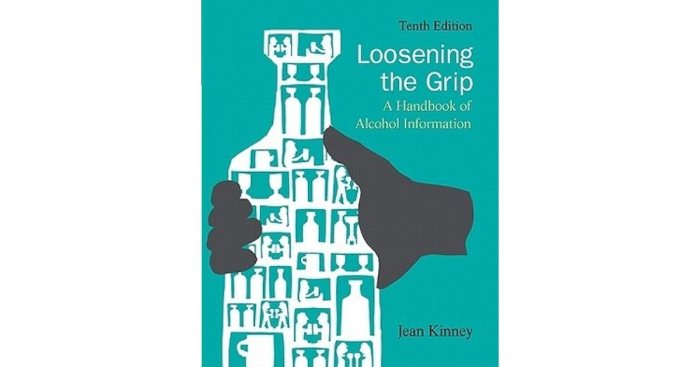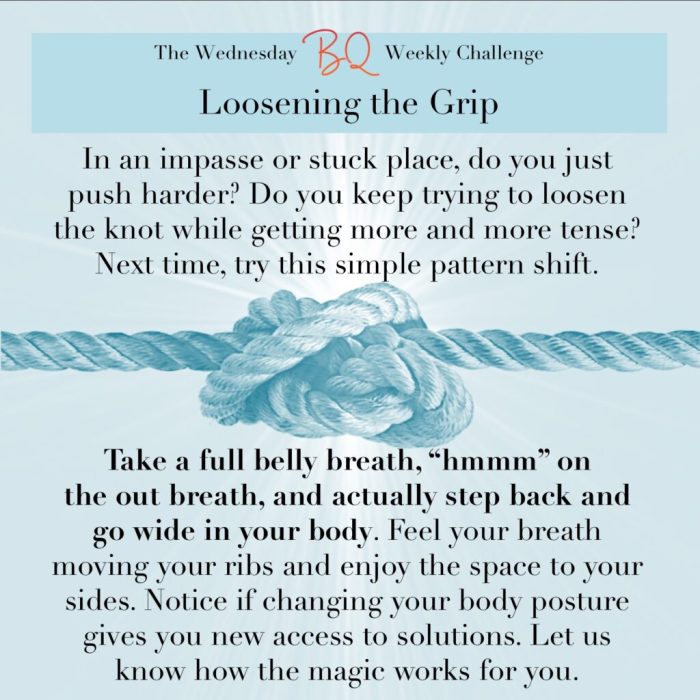Loosening the grip 12th edition pdf – The “Loosening the Grip: A Handbook of Alcoholism Treatment” (12th Edition) is a comprehensive guide to the treatment of alcoholism. This book provides a detailed overview of the biopsychosocial model of addiction, evidence-based treatment modalities, and the stages of change model.
It also discusses ethical considerations in alcoholism treatment and provides guidance on relapse prevention and aftercare planning.
The 12th edition of “Loosening the Grip” has been updated to include the latest research on alcoholism treatment. This edition also includes new chapters on motivational interviewing and medication-assisted treatment.
Overview of “Loosening the Grip: A Handbook of Alcoholism Treatment” (12th Edition)
Loosening the Grip: A Handbook of Alcoholism Treatment, now in its 12th edition, is a comprehensive and authoritative resource for professionals working in the field of addiction treatment. This book provides a thorough overview of the latest research and best practices for treating individuals with alcohol use disorders.
The target audience for Loosening the Grip includes addiction counselors, social workers, psychologists, psychiatrists, and other healthcare professionals who work with individuals struggling with alcohol addiction. The book is also a valuable resource for family members and friends of individuals with alcohol use disorders.
The 12th edition of Loosening the Grip has been updated to reflect the latest research and trends in the field of addiction treatment. Notable updates include:
- New chapters on the neurobiology of addiction and the use of technology in addiction treatment
- Updated information on evidence-based treatments for alcohol use disorders
- New case studies and examples to illustrate the principles of addiction treatment
Key Principles and Concepts

The “Loosening the Grip” approach to alcoholism treatment is grounded in a comprehensive understanding of addiction as a biopsychosocial disorder. This approach emphasizes the interplay between biological, psychological, and social factors in the development and maintenance of alcohol dependence.
Biopsychosocial Model of Addiction
The biopsychosocial model of addiction posits that addiction results from a complex interaction of genetic, neurobiological, psychological, and social factors. This model acknowledges the role of genetics in predisposing individuals to addiction, the neurobiological changes that occur in the brain as a result of alcohol use, the psychological factors that contribute to the development and maintenance of addiction, and the social and environmental factors that can influence alcohol use and recovery.
Evidence-Based Practices
The “Loosening the Grip” approach incorporates a range of evidence-based practices that have been shown to be effective in treating alcohol dependence. These practices include:
- Cognitive-behavioral therapy (CBT): CBT helps individuals identify and change maladaptive thoughts and behaviors that contribute to alcohol use.
- Motivational interviewing (MI): MI is a counseling approach that helps individuals explore their ambivalence about change and develop their own motivation to reduce or quit drinking.
- Pharmacotherapy: Medications such as naltrexone, acamprosate, and disulfiram can be used to reduce cravings, prevent relapse, and support recovery.
- 12-step programs: 12-step programs such as Alcoholics Anonymous (AA) and Narcotics Anonymous (NA) provide a supportive and structured environment for individuals to share their experiences and learn from others in recovery.
Treatment Modalities

Loosening the Grip offers a comprehensive range of treatment modalities tailored to meet the diverse needs of individuals struggling with alcoholism. These modalities include:
Individual Therapy
Individual therapy involves one-on-one sessions between a therapist and a client. It allows for personalized attention and exploration of underlying issues that contribute to alcohol misuse. Benefits include improved self-awareness, coping mechanisms, and relapse prevention strategies.
Group Therapy
Group therapy brings together individuals with similar experiences to share support and learn from each other. It fosters a sense of community, reduces isolation, and provides opportunities for peer feedback and accountability.
Family Therapy
Family therapy involves the participation of family members in the treatment process. It addresses the impact of alcoholism on family dynamics, communication patterns, and roles. Benefits include improved family relationships, reduced codependency, and a more supportive environment for recovery.
Medication-Assisted Treatment
Medication-assisted treatment (MAT) combines medications with behavioral therapy to reduce cravings, prevent relapse, and manage withdrawal symptoms. Medications used in MAT include naltrexone, acamprosate, and disulfiram. Benefits include increased treatment retention, reduced cravings, and improved quality of life.
Recovery Process and Stages of Change
The recovery process from addiction is a complex and multifaceted journey that involves significant changes in an individual’s thoughts, behaviors, and lifestyle. The stages of change model, developed by Prochaska and DiClemente, provides a framework for understanding the progression of individuals through the recovery process.
The stages of change model consists of five distinct stages: precontemplation, contemplation, preparation, action, and maintenance. Individuals progress through these stages at their own pace, and it is not uncommon for them to relapse and return to earlier stages.
Challenges and Obstacles
Each stage of the recovery process presents unique challenges and obstacles. In the precontemplation stage, individuals may be in denial about their addiction and unwilling to consider change. In the contemplation stage, they may weigh the pros and cons of changing their behavior, but may not be ready to take action.
In the preparation stage, they may begin to make small changes in their behavior, but may still struggle with ambivalence.
In the action stage, individuals make significant changes in their behavior and begin to establish a new, sober lifestyle. However, this stage can be challenging as they may experience cravings, triggers, and other obstacles that can tempt them to relapse.
In the maintenance stage, individuals work to maintain their sobriety and prevent relapse. This stage can be particularly challenging as they may face social pressures, stress, and other life events that can threaten their recovery.
Therapist Support, Loosening the grip 12th edition pdf
Therapists play a crucial role in supporting clients through the recovery process. They can help clients to:
- Understand the stages of change model and their current stage
- Identify and address challenges and obstacles
- Develop coping mechanisms and relapse prevention strategies
- Build a support system and connect with resources
- Maintain motivation and hope throughout the recovery process
Relapse Prevention and Aftercare
Relapse prevention and aftercare planning are essential components of alcoholism treatment. Relapse is a common occurrence in recovery, but it can be minimized with effective strategies and support.
Risk factors for relapse include:
- Unresolved emotional issues
- Poor coping skills
- Social triggers
- Lack of support
Evidence-based interventions to minimize the likelihood of relapse include:
- Cognitive-behavioral therapy
- Motivational interviewing
- Family therapy
- Medication
Relapse prevention plans should be developed in collaboration with the client and should include:
- Identification of high-risk situations
- Development of coping mechanisms
- Establishment of a support network
Aftercare planning is essential for long-term recovery. Aftercare services can provide ongoing support and resources to clients, such as:
- Support groups
- Individual therapy
- Medication management
- Job training
- Housing assistance
By connecting clients with ongoing support systems, aftercare planning can help to prevent relapse and promote long-term recovery.
Ethical Considerations in Alcoholism Treatment

The practice of alcoholism treatment is guided by a set of ethical principles and guidelines that ensure the well-being and rights of individuals seeking help. These principles promote confidentiality, informed consent, and cultural sensitivity, creating a safe and supportive environment for recovery.
Confidentiality is paramount in alcoholism treatment, protecting the privacy and dignity of individuals. Healthcare professionals have a legal and ethical obligation to maintain the confidentiality of patient information, ensuring that it is not disclosed to unauthorized parties without the patient’s consent.
Informed Consent
Informed consent is a fundamental ethical principle in alcoholism treatment. Before any treatment interventions are initiated, individuals must be fully informed about the nature of their condition, the proposed treatment plan, potential risks and benefits, and alternative options available. They must have the opportunity to ask questions and make informed decisions about their treatment.
Cultural Sensitivity
Cultural sensitivity is essential in alcoholism treatment, recognizing the diverse backgrounds, beliefs, and values of individuals. Treatment providers must be aware of cultural differences that may influence an individual’s experience with alcohol use, recovery process, and response to treatment. Respecting cultural norms and incorporating culturally appropriate approaches enhances the effectiveness of treatment and promotes inclusivity.
Navigating Ethical Dilemmas
Ethical dilemmas may arise in alcoholism treatment, requiring careful consideration and decision-making. Situations involving confidentiality, informed consent, or cultural sensitivity can present challenges. Healthcare professionals should seek guidance from ethical guidelines, consult with colleagues, and engage in ongoing professional development to navigate these dilemmas ethically and effectively.
Query Resolution: Loosening The Grip 12th Edition Pdf
What is the biopsychosocial model of addiction?
The biopsychosocial model of addiction is a model that explains addiction as a complex disorder that is caused by a combination of biological, psychological, and social factors.
What are some evidence-based practices for alcoholism treatment?
Some evidence-based practices for alcoholism treatment include cognitive-behavioral therapy, motivational interviewing, and medication-assisted treatment.
What are the stages of change model?
The stages of change model is a model that describes the process of addiction recovery. The model includes five stages: precontemplation, contemplation, preparation, action, and maintenance.